Santi by Krishna Choudhary: jewellery with narrative
Ancestral treasures shape contemporary designs in the hands of the jeweller
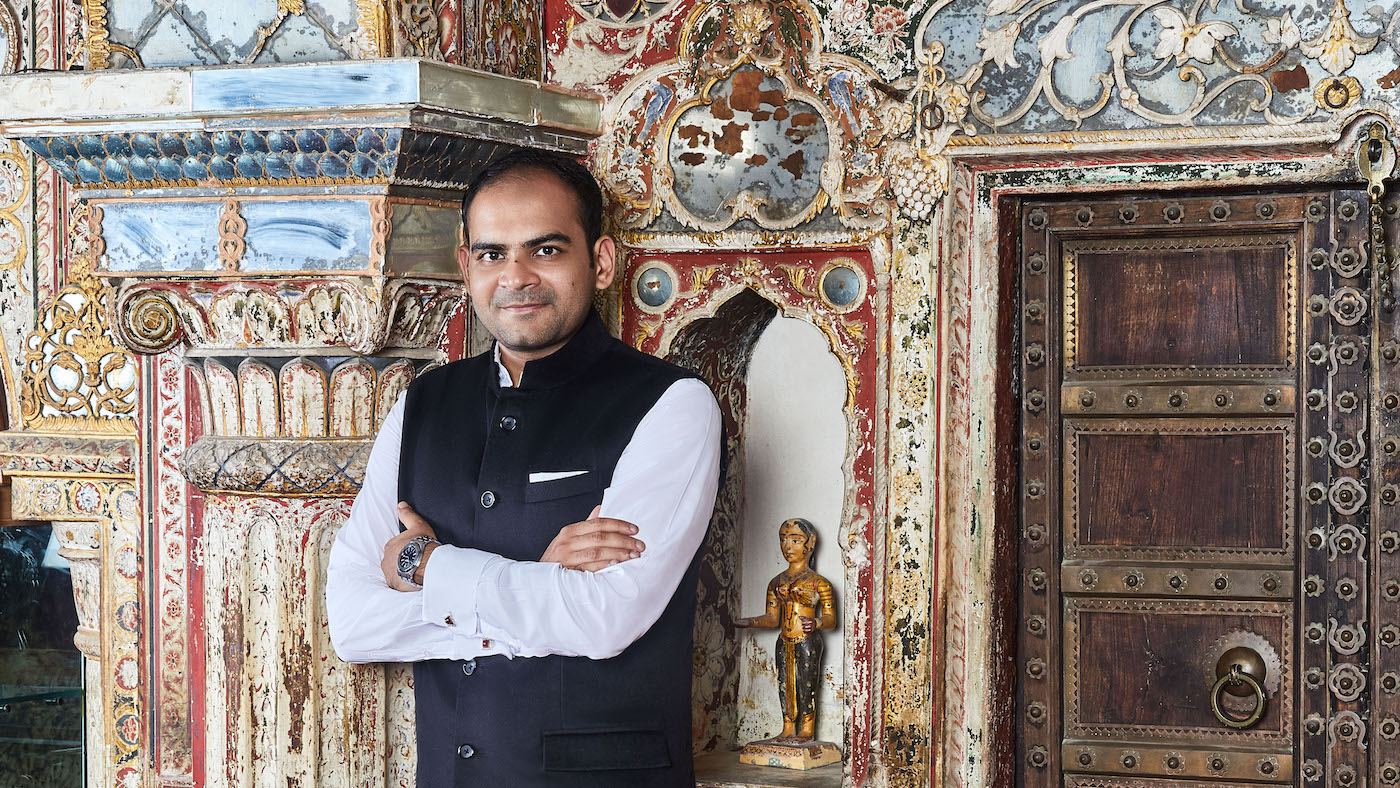
A free daily email with the biggest news stories of the day – and the best features from TheWeek.com
You are now subscribed
Your newsletter sign-up was successful
From my desk, I earlier this year discovered Saras Sadan. Located several thousand miles from London, in the pink-painted Old City of Rajasthan’s capital Jaipur, Saras Sadan is the name given to the ancestral family home of Krishna Choudhary, a tenth-generation jeweller.
To a video call, the Choudharys’ 18th century haveli makes for a backdrop of cinematic beauty: ranked among the best-preserved mansions of its kind, the treasure-chest location is made up of frescoed, colonnaded interiors and hidden courtyards. Across walls and ceilings, hand-traced scenes tell tales of romance, poetry and adventure; later, I learn that its motifs – Mughal rulers, Indian deities and numerous animals can all be named upon closer inspection – are painted using pigments derived from pulverised stones.
It’s in the Diwan-I-Khas, the haveli’s central hall that Choudhary, who is today joined by his father Santi, unveils pieces from the family’s holdings of storied jewellery and rare artefacts. Our call lasts just over one hour; it’s barely enough time to admire but an amuse-bouche to the family’s full collection, which is sizeable and meets museum standards of quality and provenance.
The Week
Escape your echo chamber. Get the facts behind the news, plus analysis from multiple perspectives.

Sign up for The Week's Free Newsletters
From our morning news briefing to a weekly Good News Newsletter, get the best of The Week delivered directly to your inbox.
From our morning news briefing to a weekly Good News Newsletter, get the best of The Week delivered directly to your inbox.
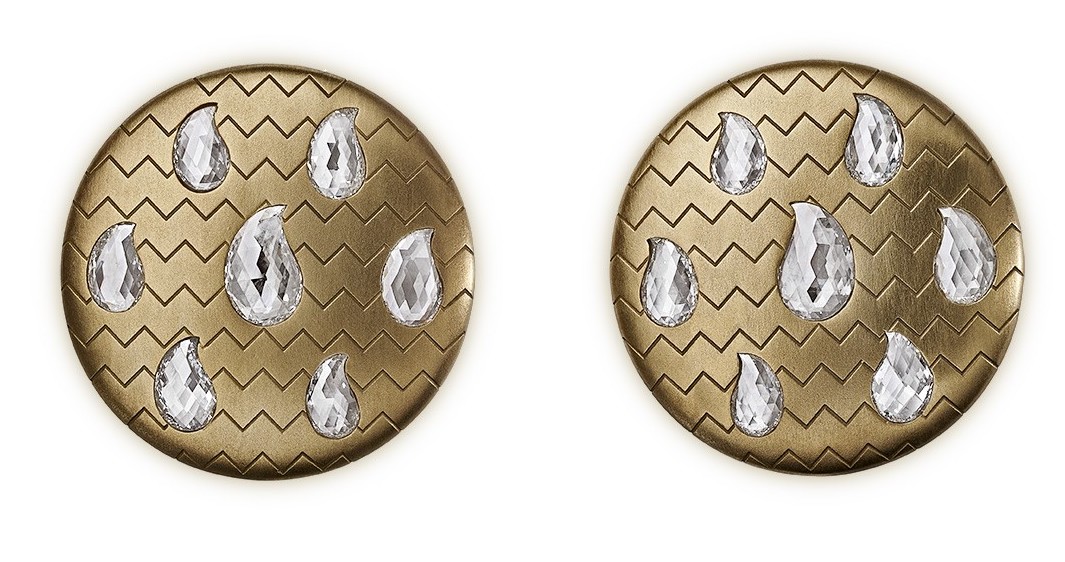
An 18th century Mughal Bazuband arm ornament is among many highlights: opulent front and back, the gold gem is set with a central emerald flanked by rubies and diamonds, its engraved reverse worked to a floral pattern. A centuries old sketch for a Kalgi turban ornament details a majestic curved design, to be lavished with diamonds and emeralds; elsewhere, another artwork depicts the duo’s forefather, Choudhary Kushal Singh Ji, bedecked in many strings of pearls.
And it was Choudhary Kushal Singh Ji. who laid the foundations for the family’s many-chaptered saga. Jaipur is named after Maharaja Sawai Jai Singh II, who first established the city in 1727. A pioneering undertaking, he blueprinted Jaipur as an ideal capital of grand boulevards dotted with palaces and mansions, their opulent interiors the masterpieces of seasoned artisans.
Choudhary Kushal Singh Ji. formed part of this modern metropolis’ upper echelons, furnished with titles and an estate of 11 villages along Jaipur’s outskirts. In the state’s name, he was also granted the license to mint coins, collect taxes and eventually manage its history-making jewellery collection.
With time and across generations, the family excelled in gem- and jewellery-trading. From the 1970s onwards, Choudhary’s father Santi began introducing the family’s expertise – alongside sensational loose gems, such as a barely seen deep-blue star sapphire – to the West, via his Royal Gems and Arts company. “These were big shoes to fill,” says Choudhary, considering his inheritance.
A free daily email with the biggest news stories of the day – and the best features from TheWeek.com
His father believed that curiosity and not a sense of duty may eventually lead Choudhary to join the family business. And so, he instead completed a business degree, before enrolling to read Islamic and Indian Art History at London’s SOAS. It was while studying at the Bloomsbury campus that the full scope of his family’s archives dawned on him. “We were taken to museums, the V&A and the British Museum, and we were handling pieces and objects,” Choudhary recalls. “They made us wear gloves and I realised I’d seen similar pieces in my home in Jaipur. To understand them better gave me a huge appreciation of these pieces.”
Inspired, he gained a diploma from The Gemological Institute of America (GIA). Choudhary says: “The moment I first saw a stone under a microscope, I fell in love.” All else was eventually taught via osmosis, by his father who, I am told, has an empathetic understanding of gems. “When he touches a stone, he starts feeling the stone,” says Choudhary. “The best way to learn was to stand behind him like a pillar, and to watch. Like a statue. I was tested constantly: ‘What do you think about this? What do you think about its age?’ That was kind of my education.”
In 2019, he established Santi. A contemporary reading of his family’s biography, Choudhary’s art jewellery business frames landmark gems, each with their own lineage, in modern settings.
Working in partnership with master makers in Milan and Paris, Choudhary finishes just a handful of rare designs per year. These he presents to a growing list of aficionados on an appointment-only basis. In London, they meet at Choudhary’s bijoux Mayfair salon. “I try to take the best of India, to the best of Paris and Milan,” he says of his globetrotting process. “The world is smaller and I think you should opt for the best you can.”
At Santi, Choudhary innovates with design; his work attests to a scholar’s respect of history and his materials. “Everything has to have a flow, a three-dimensional quality to it,” he says, holding up a pair of pale-hued chandelier earrings, at their heart two old mine cut Golconda diamonds, connected to further pear- and baguette-shaped diamonds via swags of natural saltwater Basra pearls.
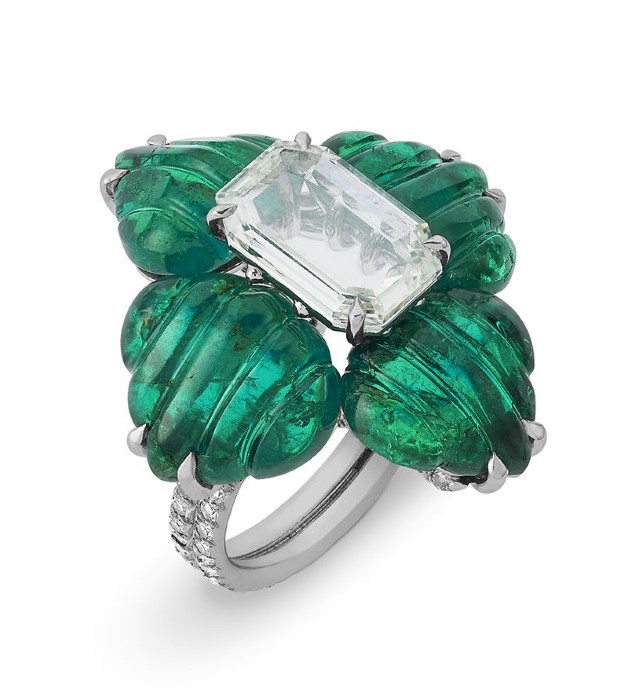
Golconda diamonds – each unearthed many centuries ago from a since shuttered mine – also make for a dazzling centre to floral earrings, opening into deep-green petals of 16 paisley-shaped cabochon Panjshir emeralds. A breathtaking ring lists a quartet of Colombian emeralds: carved to a tactile, high-relief in the 17th century, the gems now flank a portrait diamond.
Choudhary describes the repeat pattern fronting a pair of architectural disk-shaped earrings as “meditative”. There are diamonds forming paisley shapes and chevron waves placed in parallel lines. “It’s hypnotic,” he says. A modern creation, the earrings nod to centuries of artistic traditions. “Every pattern has a meaning,” Choudhary explains. “Chevrons are meant to be celestial rivers flowing in paradise, basically.”
At Santi, Choudhary enriches forward-thinking shapes with cultural narrative and fantasy. Coupled with the rarity of his heirloom materials, it’s a unique proposition and one that has endeared Santi to a new set of jewellery collectors, who come to him from as far afield as China and California’s Silicon Valley. “They have a curiosity to learn and listen, to understand jewellery.”
-
 The Olympic timekeepers keeping the Games on track
The Olympic timekeepers keeping the Games on trackUnder the Radar Swiss watchmaking giant Omega has been at the finish line of every Olympic Games for nearly 100 years
-
 Will increasing tensions with Iran boil over into war?
Will increasing tensions with Iran boil over into war?Today’s Big Question President Donald Trump has recently been threatening the country
-
 Corruption: The spy sheikh and the president
Corruption: The spy sheikh and the presidentFeature Trump is at the center of another scandal
-
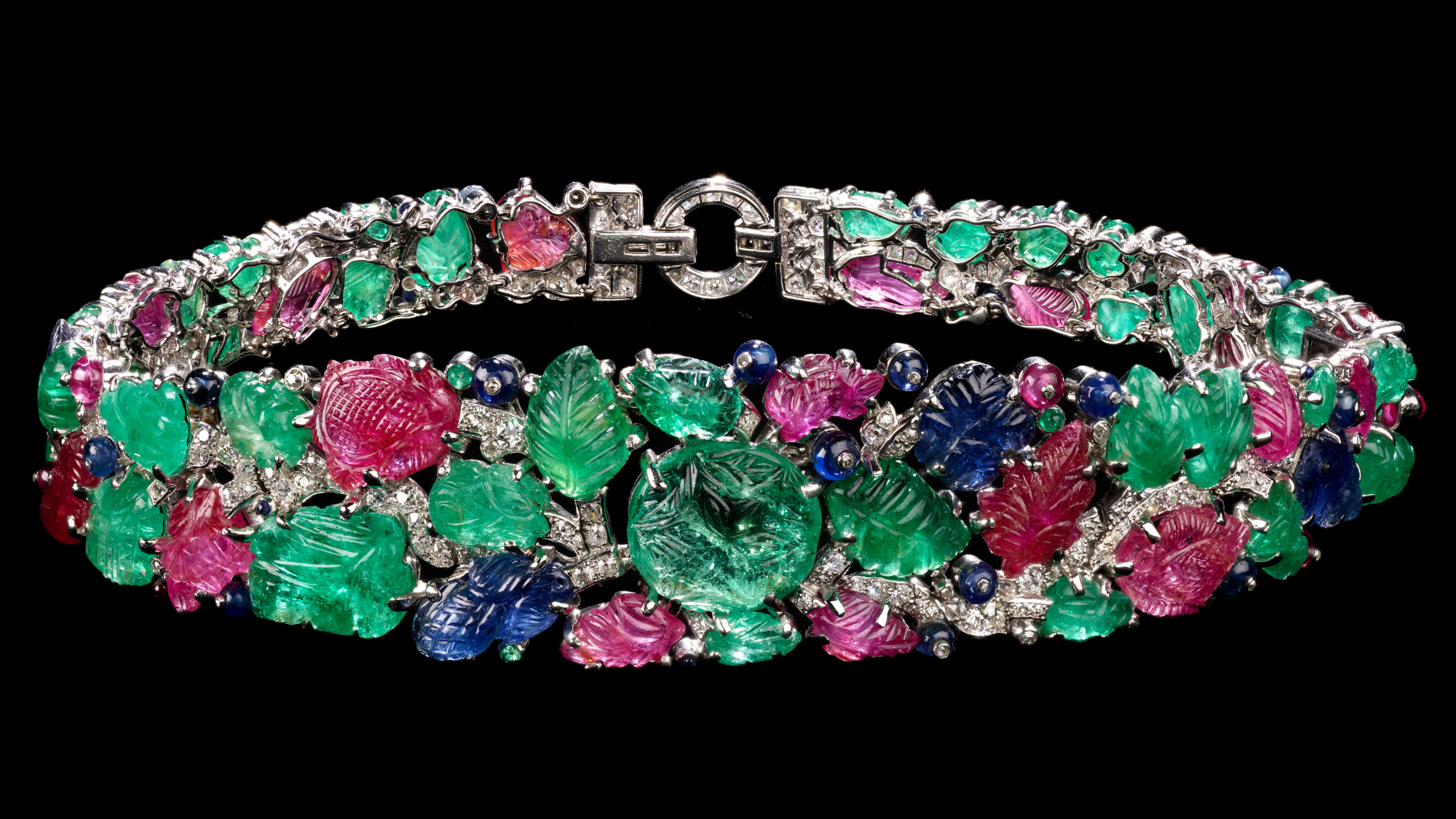 Cartier at the V&A: a 'dazzling' show
Cartier at the V&A: a 'dazzling' showThe Week Recommends A 'once-in-a-lifetime' display of the French jeweller's 'exquisite' objects
-
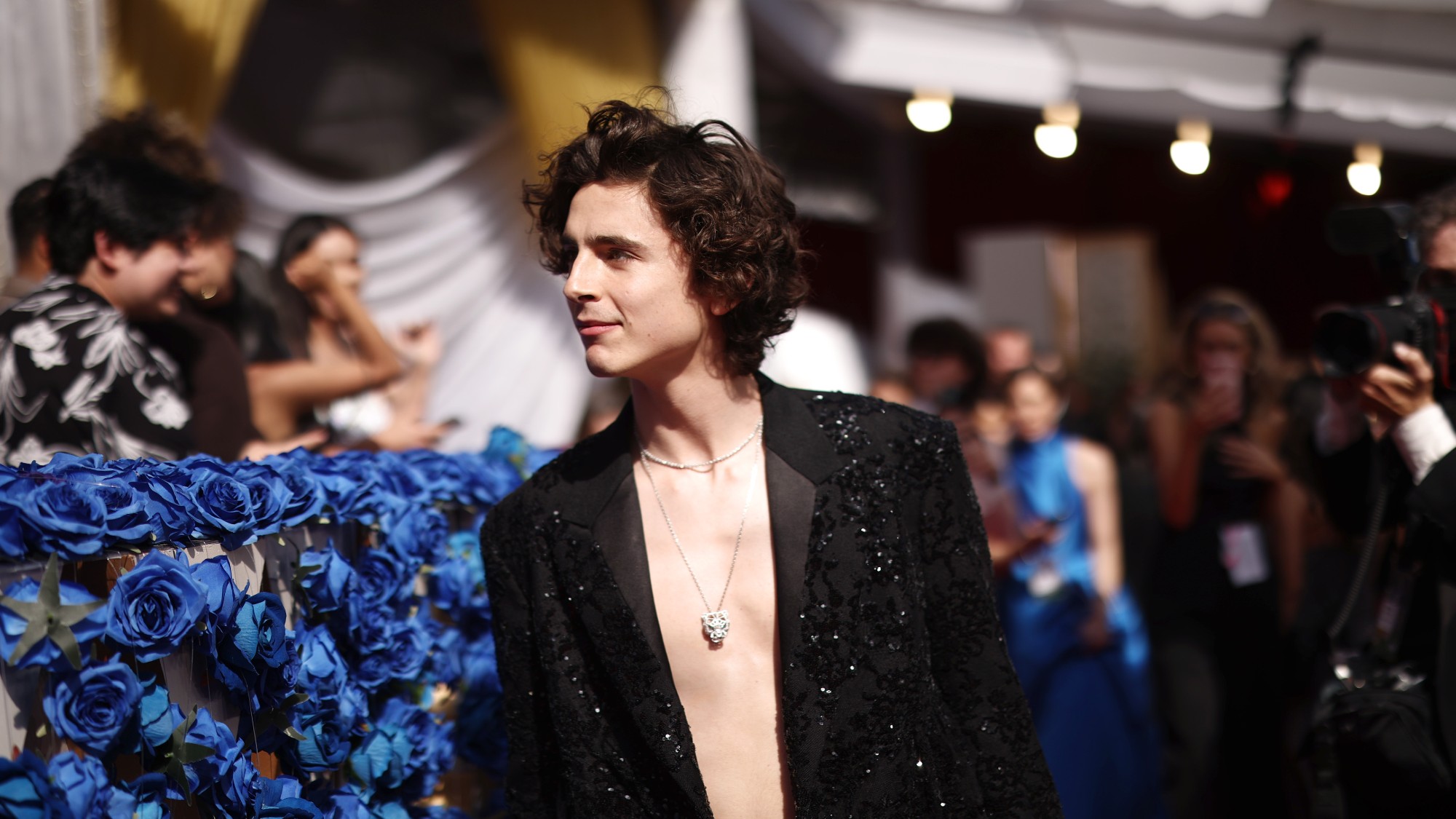 Why more men are wearing jewellery
Why more men are wearing jewelleryIn Depth Pop culture is boosting interest in earrings and necklaces, alongside classic tie pins and lapel pins
-
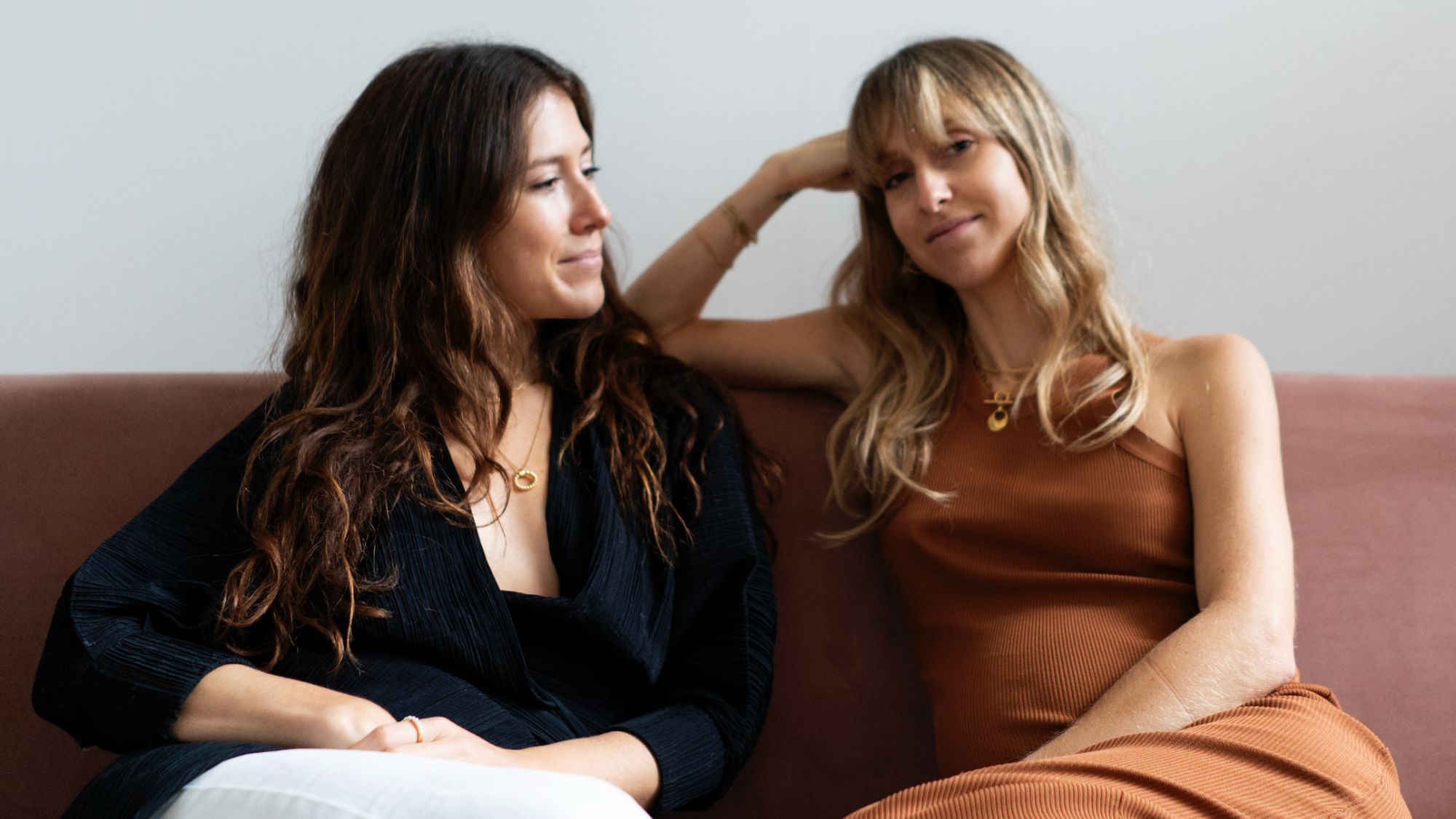 Otiumberg: sustainable jewellery beyond the hype
Otiumberg: sustainable jewellery beyond the hypeUnder the radar Launched by two sisters, this London-based brand has gone from strength to strength
-
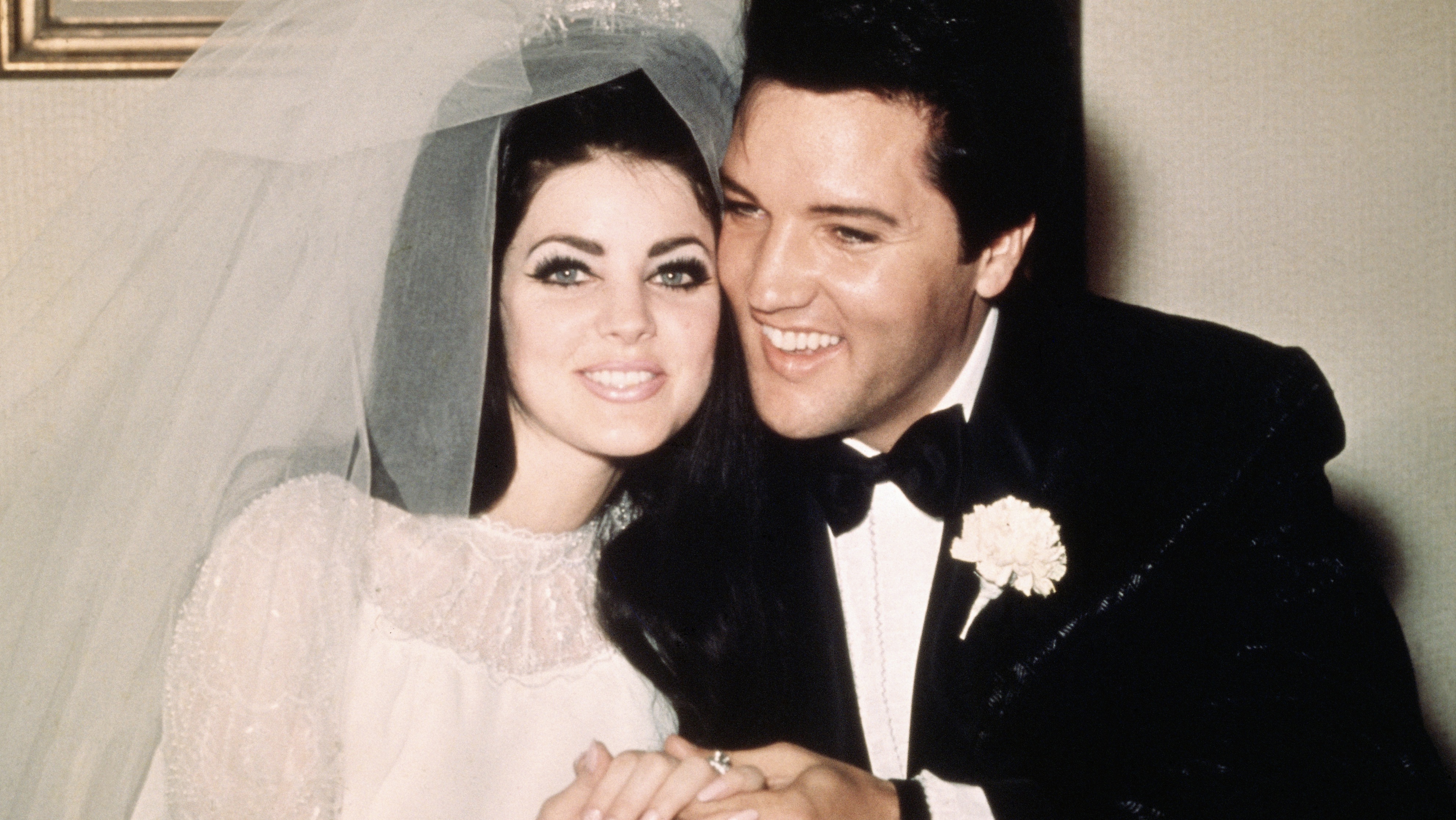 Inside the rocky marriage of Priscilla Presley and Elvis
Inside the rocky marriage of Priscilla Presley and ElvisUnder the Radar Rock and roll legend’s former wife praises Sofia Coppola’s new biopic
-
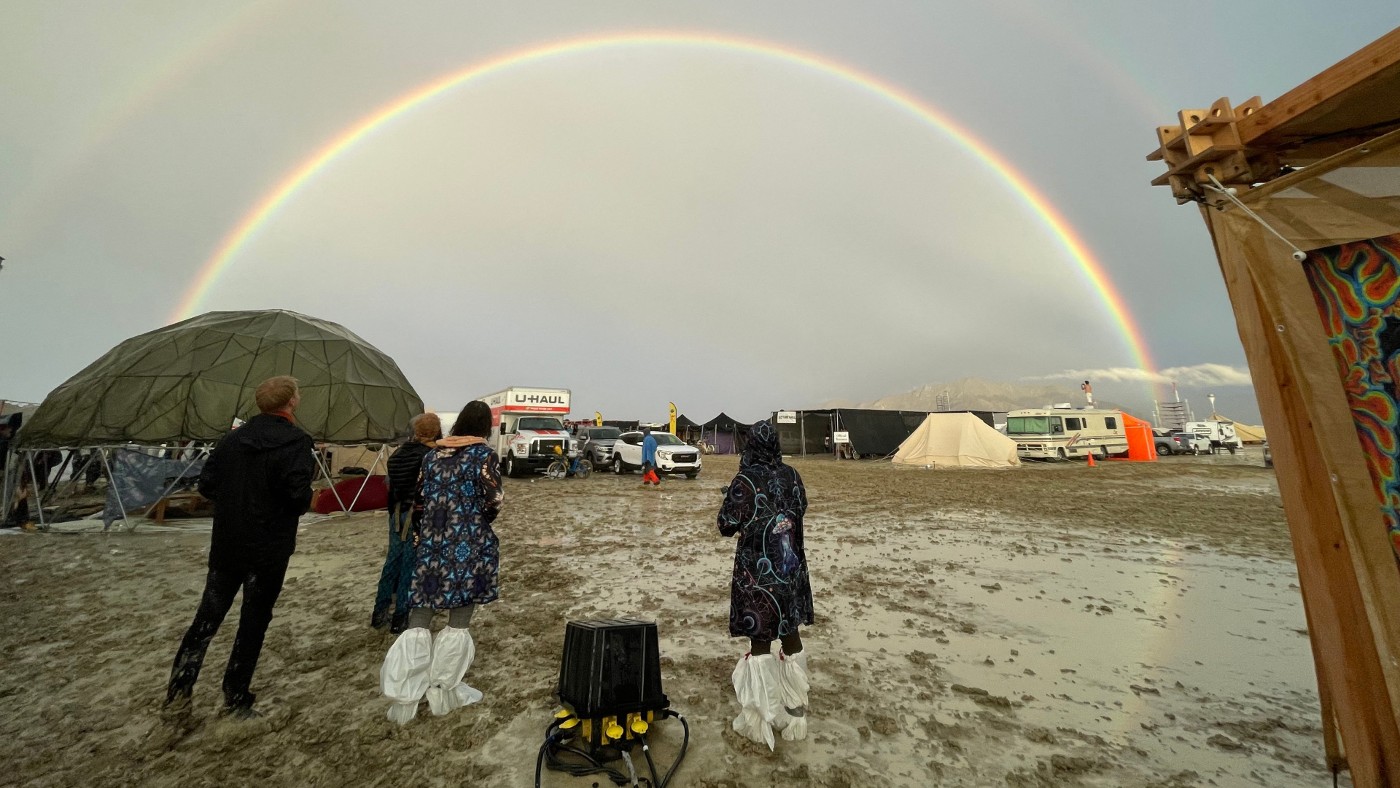 How Burning Man descended into chaos
How Burning Man descended into chaosUnder the Radar Torrential rain leaves thousands of revellers stuck at Nevada festival
-
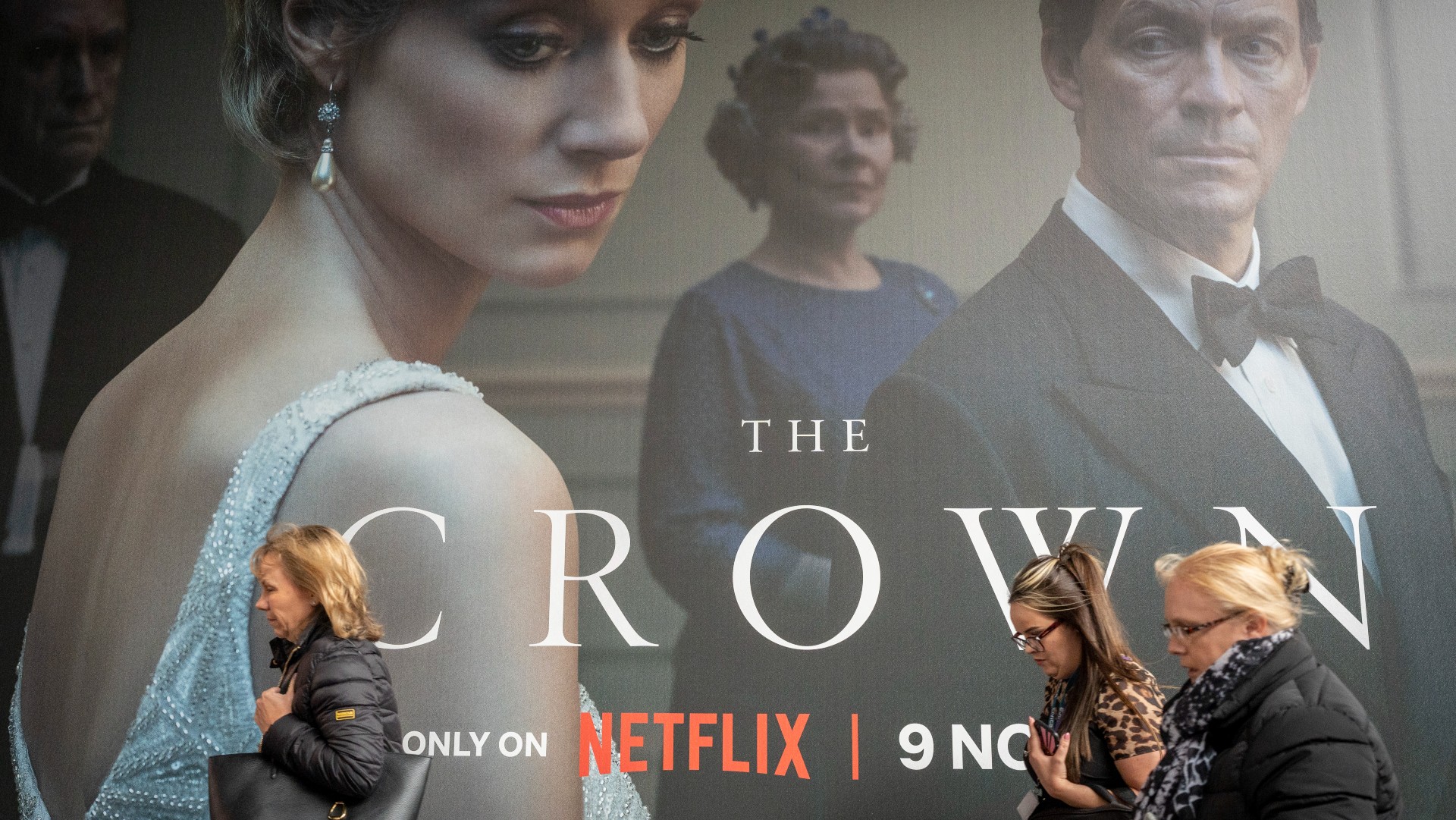 Princess Diana’s death in The Crown: how accurate is the Netflix series?
Princess Diana’s death in The Crown: how accurate is the Netflix series?Under the Radar The controversial show is returning for sixth and final season later this year
-
 Michael Parkinson: five best interviews by star presenter
Michael Parkinson: five best interviews by star presenterUnder the Radar ‘King of the chat show’ Parky has died aged 88
-
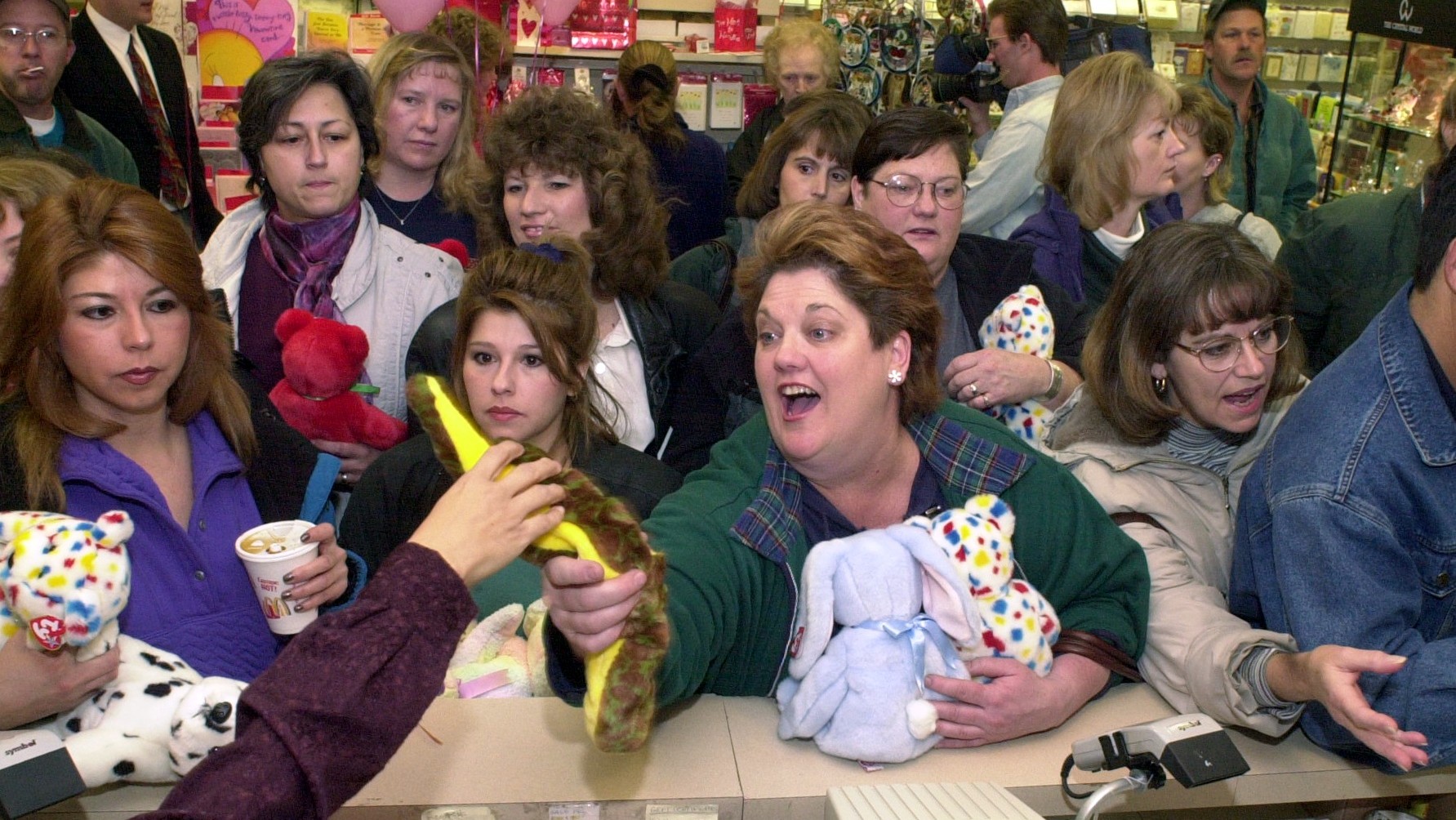 The Beanie Bubble: the true story behind fallen toy empire film
The Beanie Bubble: the true story behind fallen toy empire filmUnder the Radar New release depicts rise and fall of 1990s stuffed plushy phenomenon